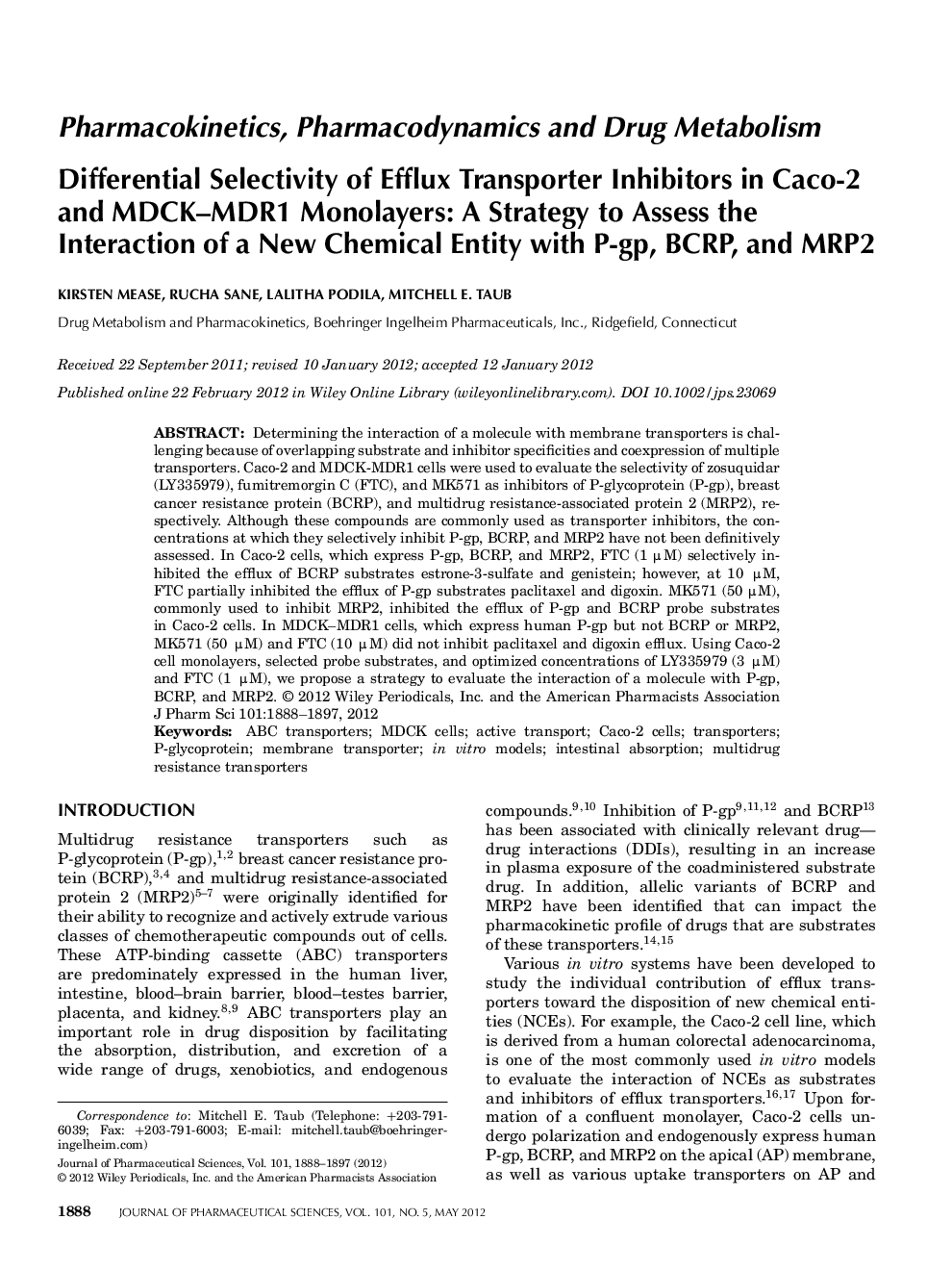| Article ID | Journal | Published Year | Pages | File Type |
|---|---|---|---|---|
| 2485158 | Journal of Pharmaceutical Sciences | 2012 | 10 Pages |
Abstract
Determining the interaction of a molecule with membrane transporters is challenging because of overlapping substrate and inhibitor specificities and coexpression of multiple transporters. Caco-2 and MDCK-MDR1 cells were used to evaluate the selectivity of zosuquidar (LY335979), fumitremorgin C (FTC), and MK571 as inhibitors of P-glycoprotein (P-gp), breast cancer resistance protein (BCRP), and multidrug resistance-associated protein 2 (MRP2), respectively. Although these compounds are commonly used as transporter inhibitors, the concentrations at which they selectively inhibit P-gp, BCRP, and MRP2 have not been definitively assessed. In Caco-2 cells, which express P-gp, BCRP, and MRP2, FTC (1 µM) selectively inhibited the efflux of BCRP substrates estrone-3-sulfate and genistein; however, at 10 µM, FTC partially inhibited the efflux of P-gp substrates paclitaxel and digoxin. MK571 (50 µM), commonly used to inhibit MRP2, inhibited the efflux of P-gp and BCRP probe substrates in Caco-2 cells. In MDCK-MDR1 cells, which express human P-gp but not BCRP or MRP2, MK571 (50 µM) and FTC (10 µM) did not inhibit paclitaxel and digoxin efflux. Using Caco-2 cell monolayers, selected probe substrates, and optimized concentrations of LY335979 (3 µM) and FTC (1 µM), we propose a strategy to evaluate the interaction of a molecule with P-gp, BCRP, and MRP2. © 2012 Wiley Periodicals, Inc. and the American Pharmacists Association J Pharm Sci 101:1888-1897, 2012
Keywords
Related Topics
Health Sciences
Pharmacology, Toxicology and Pharmaceutical Science
Drug Discovery
Authors
Kirsten Mease, Rucha Sane, Lalitha Podila, Mitchell E. Taub,
